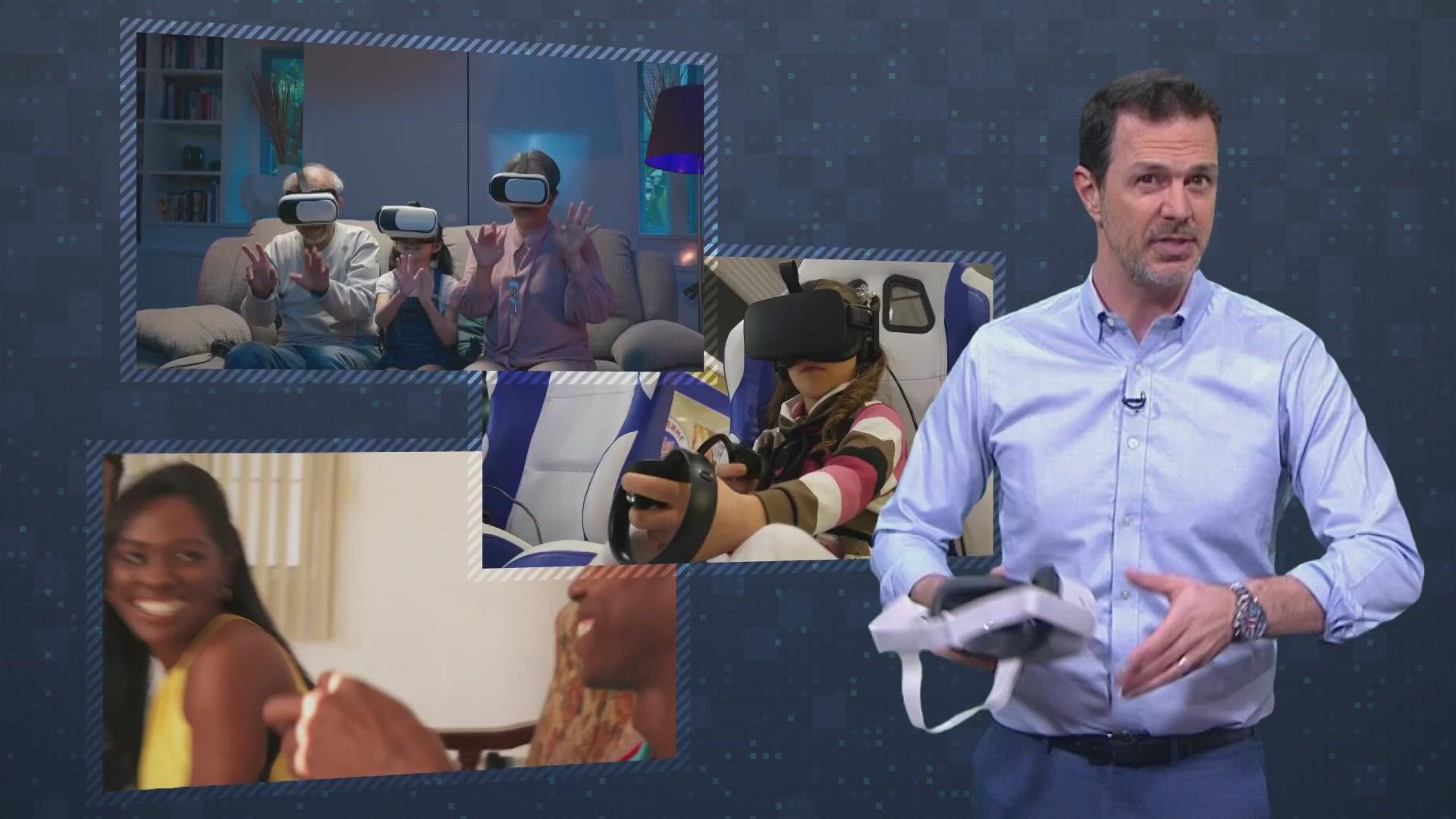DALLAS — Privacy is a consistent concern in our increasingly digital world. But Girard Kelly, head of privacy at Common Sense Media, says when it comes to devices like virtual reality headsets, the data collected is much more wide-ranging than we've become accustomed.
"These devices were not designed with kids in mind," warns Kelly. "I think the most important thing is how much data these devices collect. A lot of folks don't realize that when you put on these VR headsets, it's collecting basically a hundred data points per second."
And the privacy controls parents rely on in other media are practically nonexistant. As a result, there's little insight into how this data can be used, or by whom.
"It's very much biometric information," Kelly says. "What we're looking at, our eye gaze, our gestures, how we move, what we interact with in virtual reality. This is an entirely different type of technology, collecting very different types of really sensitive personal information."
Theoretically, your child's data becomes a product, sold off and used for marketing purposes, product development, or other exploitations,.
And since the virtual experience often takes place on a headset, parents don't always have an easy view into just what their child is seeing - or who they're interacting with.
"VR manufacturers, VR app developers need to think about kids and teens using these products and different ways to have age gates or restrict use for kids interacting with untrusted adults," Kelly says.
Virtual reality developers have done an incredible job making their fake worlds seem real. That's part of the technology's awe-inspiring power. But that realism comes with risks as well.
“As children’s brains are developing, what they perceive in these virtual environments can be perceived as actually happening in real life," Kelly says.
Several studies suggest that a child's developing brain may not be well equipped to handle these worlds that look so authentic - but aren't. From body coordination issues to visual development to the addictiveness of a hyper-real environment, parents should be mindful of these potential effects.
With the billions of dollars invested in expanding virtual reality, this technology isn't going away. But Kelly says informed parents can follow some simple tips to create safer experiences for their kids:
- Be aware of minimum age recommendations from device manufacturers - typically 13.
- Get to know privacy controls, and use them.
- Be present when kids are using VR headset.
- Monitor the amount of time spent online and be aware of its addictive nature.
- Talk with your kids about their experience. What did they see? What did they like about it? How do they feel afterward?
Kelly says this technology presents some incredible opportunities, especially for things like interactive educational experiences or remote learning. So it's not as if there aren't benefits to the ever-growing metaverse. But he wants parents to be aware of the risks, with the goal of protecting their children.
“There’s still a lot of beneficial uses for the technologies," he says, "And we want to make sure these technologies continue to grow and be adopted and have our privacy built in from the start.”

